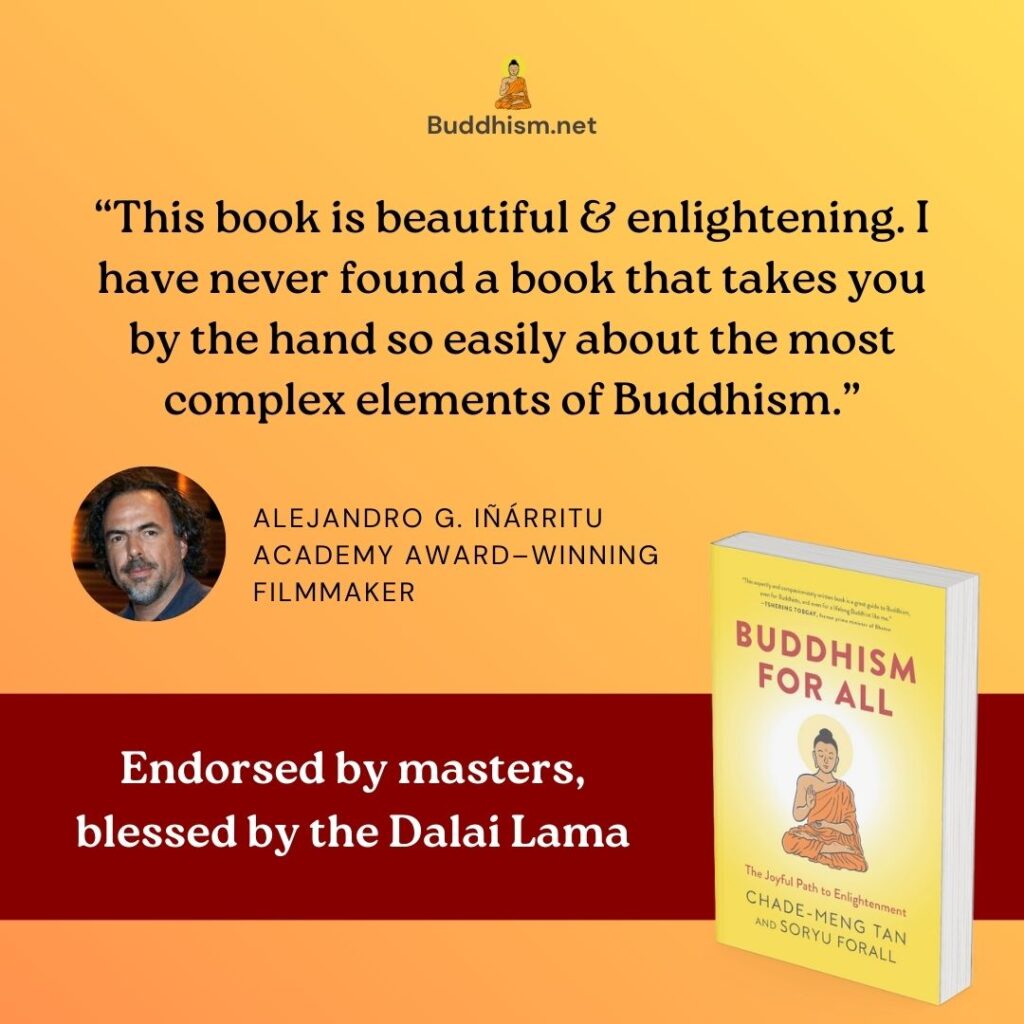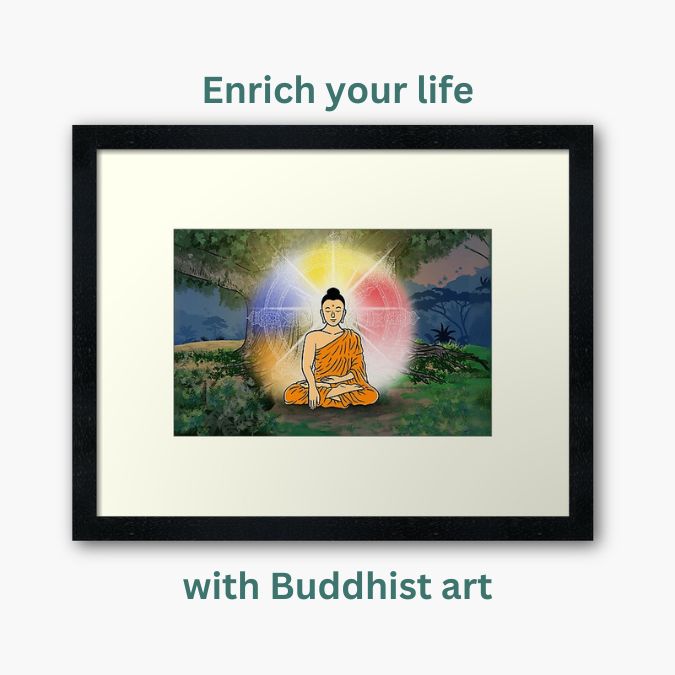Coming up on 20th July 2024 (Full moon day of July) is Āsāḷha Pūjā.
Āsāḷha Pūjā is a major Buddhist commemoration day that pays homage to the Buddha, his first sermon on the four noble truths and the founding of the Buddha’s first sangha.
This first sermon is commonly referred to as “setting into motion the wheel of Dharma”. This special day is celebrated on 15th Day (Full Moon) of July.
We extract excerpts from the book, Buddhism for All to share the Buddha’s Parinirvana:
After his enlightenment, the Buddha spent seven weeks in Uruvela. Some of the time was spent consolidating his teachings, specifically, the teachings on dependent origination was formulated during the second week.
Most of that time, however, was spent abiding in the state of “bliss of freedom.”
After seven weeks, he considered whether he should teach the Dharma or not. He was inclined toward not teaching because teaching would be “tiresome and troublesome.”
However, he also recognized all the suffering in the world, and saw that living beings are capable of resolving it. Consequently, he felt compelled by his infinite compassion to offer the Dharma to the world.
But who to teach it to first? The obvious candidates were Alara Kalama and Uddaka Ramaputta, the Buddha’s former teachers. Unfortunately, both of them had already passed away.
Next on the list were the Buddha’s five original disciples. The Buddha found out that they were residing at the Deer Park at Isipatana in Benares, so he set out to Benares to meet them. It was there that the Buddha would deliver his first major discourse.
As the Buddha was approaching the Deer Park, the five ascetics saw him at a distance and they made a deal with each other not to show the Buddha any respect.
Why? Because in their eyes, the Buddha had “reverted to a life of abundance” (for eating solid food!) and had given up on the noble search.
As the Buddha got near, however, something about him deeply touched and impressed them.
Without saying a word, all five ascetics spontaneously broke their agreement with each other, they “received his bowl and robe, made ready a seat, and brought water for washing his feet.”
After they settled down, the Buddha began his discourse.
Monks, these two extremes should not be followed by one who has gone forth into homelessness [seeking greater wisdom]:
the pursuit of sensual pleasures, which is low, vulgar, the way of worldlings, ignoble, unbeneficial;
and the pursuit of self-mortification, which is painful, ignoble, unbeneficial.
Avoiding either of these extremes, the Tathāgata is awakened to the Middle Way, which gives rise to vision, knowledge, peace, enlightenment, and nirvana.
The Tathāgata is the poetic way the Buddha refers to himself in third person.
It literally means either “Thus Come” or “Thus Gone”.
It alludes to the bold authenticity and simplicity of the “thusness” of a fully enlightened being.
The Buddha’s teaching was henceforth known as the Middle Way because it avoids overloading yourself with bodily pleasure or bodily pain.
In the rest of the discourse, the Buddha covered topics that are central to all of Buddhism: the nature of suffering, the cause of suffering, the cessation of suffering (nirvana), and the path to liberation from suffering. It is known as the Four Noble Truths.
We mentioned previously that Dharma is universal law pertaining to suffering and freedom from suffering, and that we are specifically interested in these four subdomains of Dharma:
The nature of suffering
The causes of suffering
The cessation of suffering
The methods for ending suffering
Each of the Four Noble Truths addresses one of the four subdomains of Dharma, in the same order.
Read the story of Buddha’s final nirvana in these sections from the Buddhism for All book:
The Buddha’s Findings: The Middle Way and The Four Noble Truths


